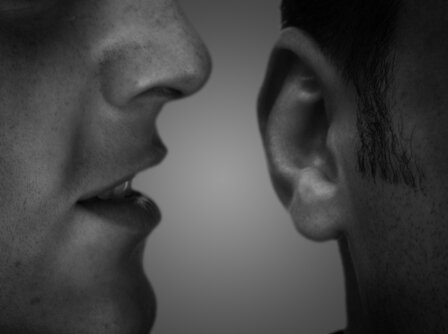Top 10 Most Controversial U.S. Supreme Court Rulings
Suggested by SMS
10. Marbury v. Madison (1803)

How can an 1803 case about Secretary of State James Madison’s refusal to seat four judicial appointees be controversial you ask? Because this is the case that made the Supreme Court what it is today. This was the case that introduced the idea of “judicial review” – the ability of the Court to declare acts of Congress unconstitutional. Although we understand this to be part of the Court’s job description, this is a power that was not explicitly granted by the Constitution. Some might call it the first instance of “judicial activism” by the legendary Chief Justice John Marshall, but without this case, the Court as we know it would not exist.
9. Gideon v. Wainwright (1963)

Most of us are familiar with the fact that if we are charged with a crime, one will be provided for us if we are unable to afford a lawyer. If you ever find yourself in that situation, you can thank a petty thief named Clarence Gideon. Until Mr. Gideon wrote a letter to lawyer Abe Fortas (later a Supreme Court Justice himself) asking for help finding a lawyer due to his impoverished status, individuals charged with a crime had to retain their own lawyer. The Supreme Court held that that anyone charged with a serious criminal offense has the right to an attorney under the Sixth Amendment, and the state must provide one if they are unable to afford legal counsel. Possibly only the most libertarian of libertarians would find this controversial, but some still believe that “public defenders” (a term that did not exist until this case came along) are an unnecessary government expense, particularly in these economic times. Whether you agree with the Supreme Court or not, do yourself a favor and read Gideon’s Trumpet, a book detailing the story behind this case
8. Miranda v. Arizona (1966)

Thanks to television police dramas, nearly everyone knows the “Miranda warning” by heart, although the younger of us might not realize that the case that gave rise to a police officer’s need to inform a suspect of his due process rights is less than 50 years old. The Supreme Court ruled that the Due Process Clause of the Fourteenth Amendment requires that criminal suspects must be warned of their rights (the right to remain silent, to have an attorney present, and, if the suspect cannot afford an attorney, to have one appointed by the state) before they are questioned by police. It retains some degree of controversy still today (“getting off on a technicality”), but most accept it simply as a procedural requirement.
7. Regents of the Univ. of Cal. v. Bakke (1978)

Race-based set-asides in education – nothing controversial there, right? In Bakke, the Supreme Court ruled (in a 5-4 decision, the narrowest of margins) that the Equal Protection Clause of the Fourteenth Amendment meant that race could be only one of a number of factors that could be used by college admissions boards (or other similar institutions). The decision did leave the door open to some race usage in admission decisions, and was later modified in Grutter v. Bollinger (2003), in which the Supreme Court held that a narrowly-tailored use of race in student admission decisions may be permissible under the Equal Protection Clause.
6. Lawrence v. Texas (2003)

From race to sex, the Supreme Court handles all the controversial subjects. In this case, the Supreme Court held that a Texas law prohibiting homosexuals from engaging in consensual sodomy was prohibited by the Due Process Clause of the Fourteenth Amendment. In making this ruling, the Court overturned Bowers v. Hardwick (1986), which had upheld a Georgia statute outlawing sodomy. The issue in both cases deals with the issue of whether the Constitution provides a “right of privacy” (and whether that extends to the sexual acts of consenting adults. Justice Clarence Thomas voted to uphold the Texas law at issue in Lawrence, as he said he could find “no general right of privacy” or relevant liberty in the Constitution. However, Justice Thomas added that he found the law to be”silly,” and would have voted to repeal the law if he had been a member of the Texas Legislature. The Lawrence case has had the effect of invalidating similar laws throughout the United States. As a result, social conservatives have decried the Lawrence ruling.
5. Gregg v. Georgia (1976)

In 1972, the Supreme Court (in Furman v. Georgia) struck down state laws that gave juries sweeping discretion in imposing the death penalty, holding that these laws violated the Eight Amendment prohibition of “cruel and unusual” punishment. In response, 37 states enacted new death penalty laws that sought to address the court’s concerns about the arbitrary imposition of the death penalty. Four years after Furman, the Supreme Court reaffirmed the constitutionality of the death penalty in Gregg (with two companion cases from Florida and Texas), rejecting claims that capital punishment was always in violation of the Eighth Amendment. However, Gregg did imply that mandatory death penalty statutes would violate the Eighth Amendment (and Woodson v. North Carolina, decided the same day, outlawed the mandatory death sentence).
4. Griswold v. Connecticut (1965)
For some, the Supreme Court invalidating a state law barring married couples from buying contraceptives might not seem controversial. However, the significance (and controversy) of Griswold is that the Court overturned that law based upon the infamous (to law students, anyway) pronouncement that the right to privacy was found in the “penumbras” of the Bill of Rights. This finding of a constitutional right to privacy has been extremely controversial, and has served as the basis for other cases on this list. Critics cite Griswold as the forerunner of “judicial activism” – reaching a desired result, and then attempting to find a Constitutional basis for it.
3. Dred Scott v. Sandford (1857)

Some call this the case that started the Civil War (although history scholars will explain to you that it was a wee bit more complicated than that). Dred Scott was a slave who was taken from a Missouri (a slave state) to “free” states and territories (which barred slavery). Mr. Scott filed a lawsuit claiming that because he had lived on free soil he was entitled to his freedom. When this went to the Supreme Court, Chief Justice Roger Taney wrote the famous opinion holding that neither Dred Scott, nor any person of African ancestry, could claim citizenship in the United States. As a result, he could not bring suit in federal court (under diversity of citizenship procedural rules). What made this even more controversial was the statement that Mr. Scott’s temporary residence outside Missouri did not affect his emancipation under the Missouri Compromise, since the Court reasoned that reaching that result would deprive Mr. Scott’s owner of his property.
2. Brown v. Board of Education (1954)

In 1896, the Supreme Court, in Plessy v. Ferguson, upheld a Louisiana law that mandated “equal, but separate, accommodations for the white and colored races” on railroad cars. As a result, Plessy paved the way for the Jim Crow laws of the South. Half a century later, the Supreme Court overturned Plessy in Brown, holding that racial segregation in schools violated the Equal Protection Clause of the Fourteenth Amendment. Chief Justice Earl Warren wrote for a unanimous Court in stating that “separate educational facilities are inherently unequal.” This case led to the desegregation (sometimes forcefully) of schools across the nation. Future Supreme Court Justice Thurgood Marshall was one of the NAACP lawyers who successfully argued the case.
1. Roe v. Wade (1973)

If you known the name of only one Supreme Court case, this is likely the one you know. Building upon the Griswold “right of privacy,” the Roe Court held that a mother may abort a pregnancy for any reason until the “point at which the fetus becomes ‘viable.” The decision overturned all state and federal laws outlawing or restricting abortion that were inconsistent with its holdings. Those who oppose Roe are not just those who feel that it is morally wrong – some argue that the definition of “viable” in 1973 (“usually placed at about seven months but may occur earlier, even at 24 weeks”) is outdated due to developments in medicine.










No mistaking the bias here. Any list of controversial decisions that lists Dred Scott third misses the point entirely.
Personally I think all of these are certainly controversial rulings (yes, including Dred Scott third) – and I absolutely believe Roe v. Wade is THE most controversial. It’s still being argued constantly.
More controversial U.S. Supreme Court cases here:
http://www.ranker.com/list/most-controversial-supreme-court-cases/michael-gibson